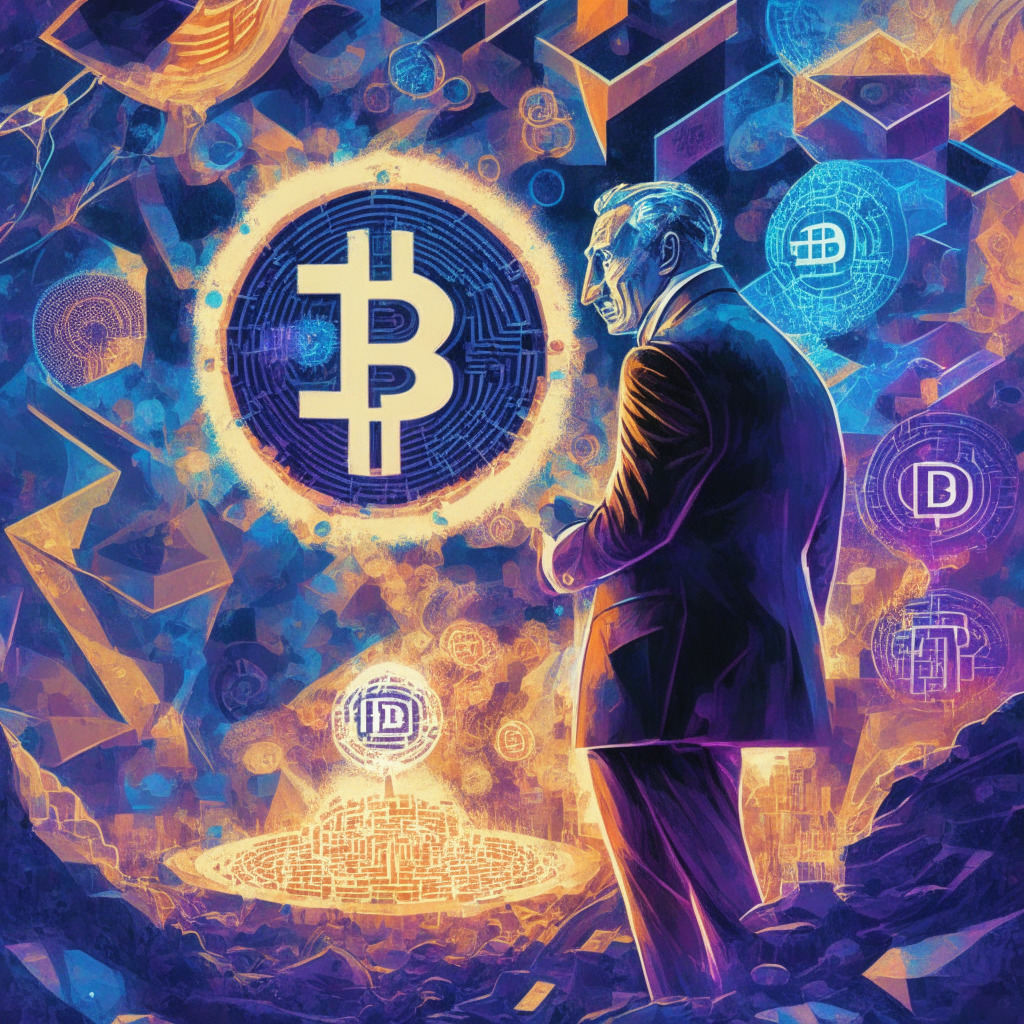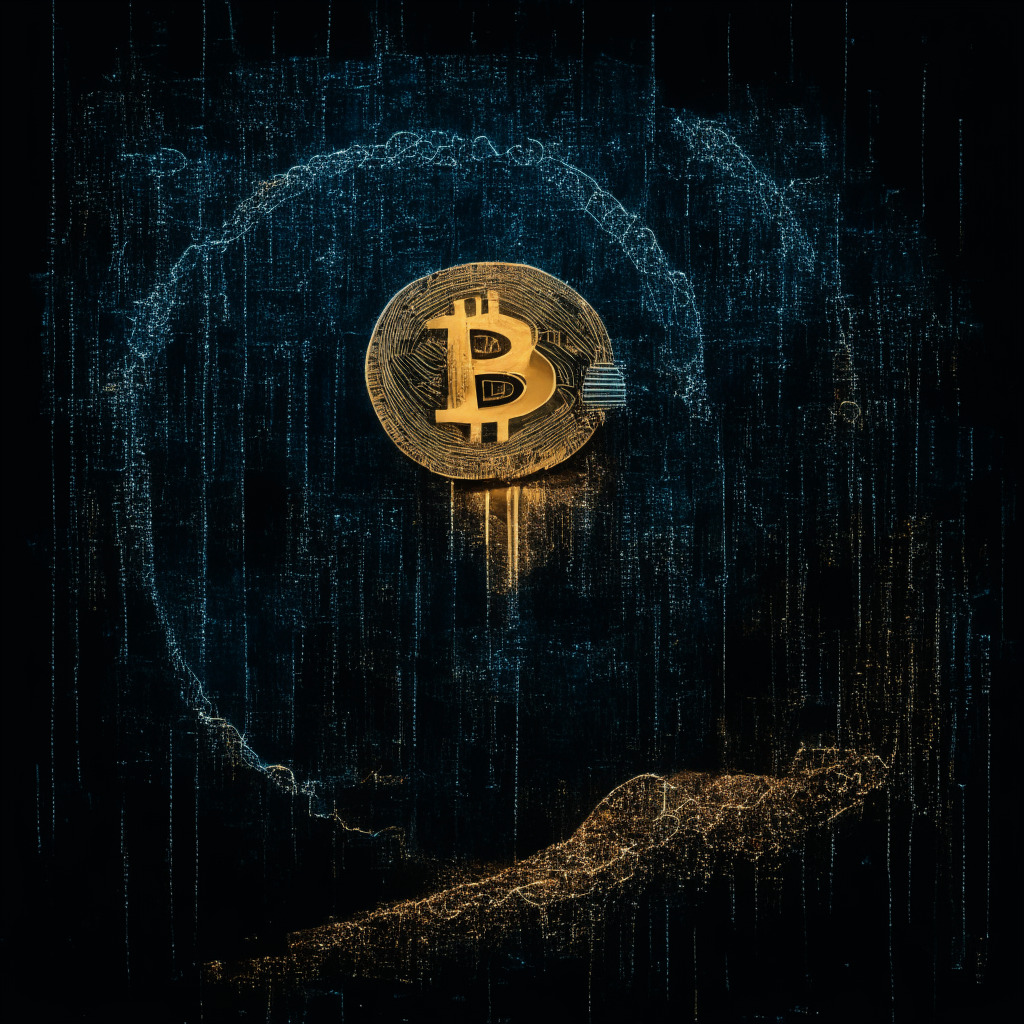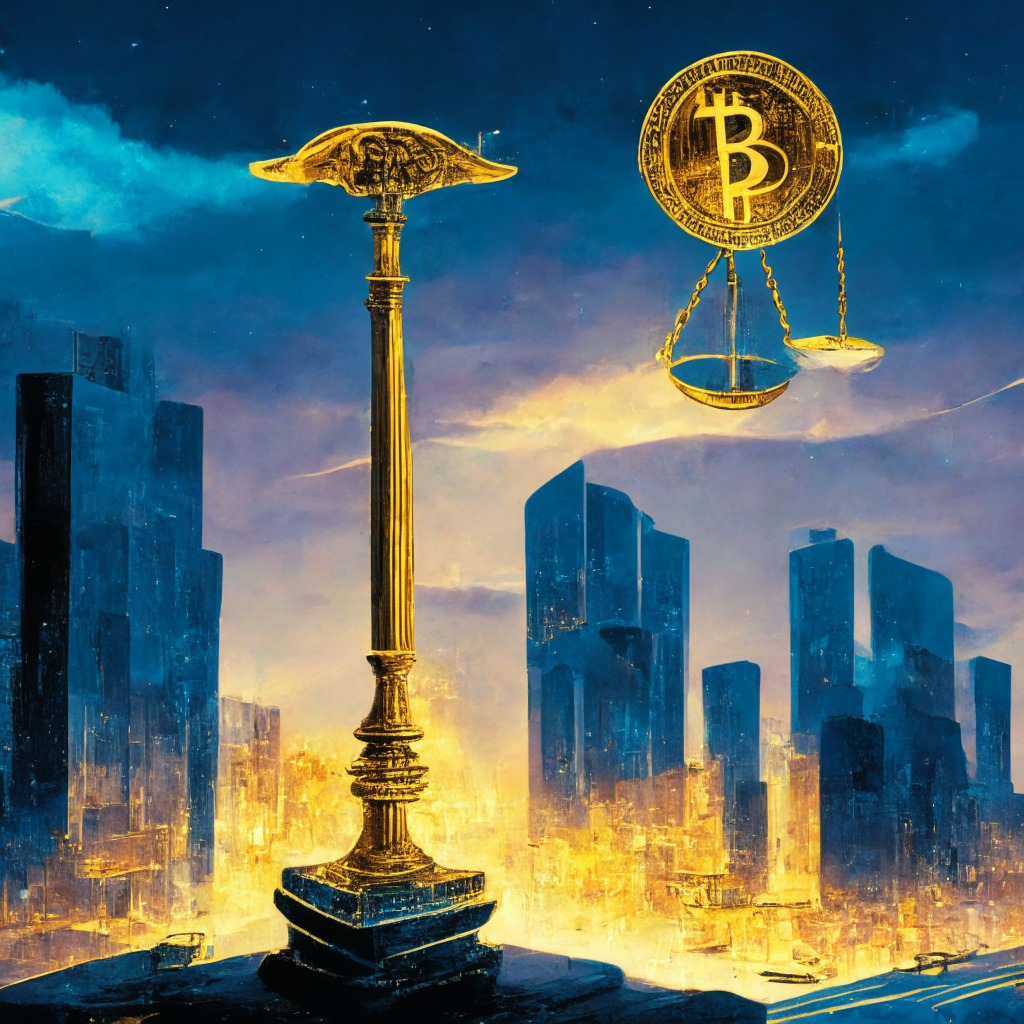“In a recent blockchain trial, Sam Bankman-Fried is accused of misuse of FTX user funds. His ex-business partner alleges that under his direction, she fraudulently withdrew and invested billions from Alameda. This highlights ongoing concerns over crypto regulation, security, and transparency.”
Search Results for: AI
Balancing Act: Choosing the Right Consensus Mechanism for Your Blockchain Project
“Choosing a consensus mechanism for a blockchain project is complex and multifaceted, involving the balancing of security, sustainability, scalability, regional preferences, and long-term project goals. The decision requires understanding and navigating through various project-specific details and an ever-evolving technology landscape.”
Gold Versus GambleFi: The Battle for a Safe Haven in Uncertain Economic Times
In the midst of global economic uncertainty, gold’s reliability shines while a gold token, XAUT, experiences a market rise implying a bullish sentiment. Emerging prospects like the TG.Casino, a GambleFi project, blending blockchain’s decentralised advantages with casino gaming, are gaining traction.
Sam Bankman-Fried Trial Potentially Overhauls Crypto Legal Landscape: A Detailed Analysis
The ongoing trial of crypto bigwig Sam Bankman-Fried could significantly shape the cryptocurrency legal landscape. The defense is focusing on minute details, potentially laying groundwork for a later appeal. The case’s outcome may influence future regulations of blockchain-based businesses.
Ethereum’s Layer 2 Networks: Breakthroughs and Cautions in the Blockchain Sphere
“Ethereum’s integration of layer 2 networks marked a shift in industry practices, with auxilliary networks supporting developers and easing mainnet congestion. Base and Friend.tech, for instance, have seen significant growth. However, Messari’s analysts advise caution due to market uncertainties.”
Navigating Murky Waters: The Saudi-Chinese AI- Blockchain Venture and Binance’s IRI Commitment Review
Saudi Arabia and China are collaborating to create AceGPT, an Arabic-based AI system designed for Arabic queries. Despite its potential, concerns arise over misuse of sensitive information and neglect of safety checks. Meanwhile, the blockchain Industry Recovery Initiative receives criticism for lack of funding transparency amid falling crypto venture funding.
Unveiling Binance’s $1B Recovery Fund: Generous Aid or Strategic Maneuver?
“Binance’s $1B cryptocurrency recovery fund, the Industry Recovery Initiative (IRI), has reportedly invested only an estimated $30M since its inception, despite large capital commitment. With growing regulatory concerns, unused funds were moved to Binance’s corporate treasury, raising questions about the effectiveness of such recovery initiatives in the evolving blockchain industry.”
Pioneering a New Frontier: China Daily’s Venture into the Metaverse and NFTs
“China Daily, an English-language newspaper giant, has announced a $390,000 budget for creating a metaverse and non-fungible tokens (NFT) platform. This groundbreaking initiative, soliciting offers from both domestic and international blockchain firms, highlights the escalating global interest in NFTs and the metaverse, potentially morphing the future of journalism and content creation.”
Cryptocurrencies in Conflict Resolve: Israeli Cyberspace Crackdown vs. Crypto Aid Israel
The Israeli police cyber unit and Binance tackled Hamas’ attempts to raise funds via cryptocurrency while Crypto Aid Israel, supported by Fireblocks, was established to receive cryptocurrency donations for displaced citizens securely. The growing cooperation could potentially link cryptocurrency assets and traditional banking, crystalizing a hybrid financial future vision.
Crucial Crypto Updates: The Bitcoin Slump, Crypto Aid Israel and The Rise of BitVM
Bitcoin’s value hovers at $27,653 as Robert F. Kennedy Jr, a crypto enthusiast, vies for presidency as an independent, proposing the reinforcement of the US dollar with Bitcoin among other assets. Cryptocurrency organizations, including Fireblocks, offer aid in the midst of the Israel crisis, suggesting possible integration of crypto in traditional finance systems. Robin Linus unveils BitVM, potentially importing Ethereum-level smart contracts to the Bitcoin sphere.
Blockchain Blemishes: South American Cybercrime Investigation Unravels Crypto’s Double-Edged Sword
“This story embodies the complexities of the blockchain era: a vortex of opportunities and challenges swirling together. Secure online transactions and financial autonomy are laudable, but the obfuscation and veil of anonymity may inadvertently shield devious individuals, unfurling a global chase through digital footprints across international borders.”
Fortifying Social Media: Friend.tech’s 2FA Strategy Against SIM-Swap Attacks
Friend.tech, a decentralized social media platform, has strengthened its security systems amid increasing SIM-swap attacks by incorporating a Two-Factor Authentication password feature. This additional security measure urges users to set another password when logging in from unrecognized devices, aiming to protect against cell carrier or email breaches without interfering with password resets.
Smart Contracts on Bitcoin: The Future of Blockchain or an Overreaching Gamble?
The recent “BitVM: Compute Anything on Bitcoin” white paper by ZeroSync’s project lead, Robin Linus, proposes a new way to implement complex off-chain smart contracts on Bitcoin. Based on a Turing Complete system, this method would broaden Bitcoin’s operations to include applications like tactical games verification, bridging BTC to foreign chains, and constructing prediction markets.
Navigating Uncertain Waters: Regulatory Influence in Crypto’s Course and Ripple’s Ongoing Legal Drama
“Highlighted is the critical role of regulation in the crypto industry’s evolution, and its capacity to shape future developments. Ripple’s ongoing legal struggle with the U.S. Securities and Exchange Commission exemplifies high-profile regulatory challenges. The delicate balance between fostering innovation and deterring fraudulent practices underpins the crypto sphere’s future.”
Blockchain Revolution: Promise of Future or Path to Peril?
“Blockchain technology emerges as the future of secure and decentralized transactions with its ability to ensure authenticity and prevent fraud. Despite the vast potential and growth of markets like cryptocurrency, it’s not without risks including anonymity concerns, market volatility, and environmental impact due to its energy-intensive nature.”
China Daily Ventures into NFT: An Ambitious Leap or A Trepid Path?
“China Daily, a CCP-owned newspaper, intends to launch an NFT platform in collaboration with a third-party blockchain firm. With a fund amounting to 2.813 million yuan, the aim is to foster Chinese civilizational influence through tech including Blockchain, AR/VR, NFTs, cloud computing and big data.”
Astrology-themed NFT Scam: Unveiling Blockchain’s Stark Security Challenges
The astrology-themed NFT project, Lucky Star Currency (LSC), has reportedly left with over $1 million, raising serious concerns about the security measures in the blockchain industry. Despite blockchain’s foundational benefits, it’s not invulnerable to manipulative actions, particularly when precautions are ignored. This incident underscores the need for vigilance, research, and due diligence in the crypto space.
Blockchain Aid: A Lifeline in Humanitarian Crises or a Cybersecurity Challenge?
Local Israeli blockchain organizations have formed ‘Crypto Aid Israel’, a global fundraiser to provide urgent aid to displaced citizens amidst ongoing conflict. The initiative aims to deliver immediate help, like food and medical products, and emphasizes the importance of secure transactions to prevent scams. This blockchain-powered aid highlights the potential of the technology in humanitarian situations.
Bitmain’s Struggle but Hive’s Triumph: A Tale of Two Bitcoin ASIC Companies
Bitcoin ASIC manufacturer Bitmain has paused October salary payouts for its employees due to struggles to achieve net positive cash flow. This decision includes a 50% pay cut and elimination of standard bonuses and incentives. Amid financial troubles, Bitmain’s survival relies on concrete financial recovery strategies.
Digital Asset Market Boom: A Spotlight on Bitcoin, Ethereum, and Solana Amid Regulatory Uncertainty
The digital asset market recently observed a significant increase, with product inflows reaching $78 million, marking the highest rise since July. A surge was also seen in exchange-traded products, growing 37% in a week. Bitcoin experienced a notable boost, while Ethereum’s growth remains slower. Surprisingly, altcoin Solana recorded substantial outflows, yet maintains popularity. Interestingly, a majority of last week’s inflows originated from Europe due to its clearer regulatory framework.
Surging Trust Wallet Token and the Exciting Blockchain Casino Evolution
Trust Wallet’s native TWT token has seen a 30% increase due to development activity on the Binance Smart Chain. Despite indications of a possible retracement, TWT exhibits strong momentum ahead of a major release announcement. Meanwhile, TG.Casino, a Telegram-based casino with a strong blockchain ecosystem, is getting attention with a staggering staking APY of 3,446%.
Crossroads of Innovation and Security: EU’s Proposed Regulations on Large-Scale AI Models
The European Union is reportedly discussing stricter regulations on large-scale language models (LLMs) like OpenAI’s GPT-4 and Meta’s Llama 2, aimed at controlling these models without overloading start-ups. These discussions touch on the implications of LLMs, user safety, and ethical AI deployment, mirroring the approach of the EU’s Digital Services Act.
Harnessing AI and Crypto: Legal Strides in Ukraine and the UK Amid Innovation Tensions
“Ukraine’s Ministry of Digital Transformation has announced a roadmap for AI regulatory progress, aiming to prepare businesses for future requirements and ensure ethical AI usage. Meanwhile, major crypto players are adjusting to new financial promotion regulations from the UK’s Financial Conduct Authority, aiming to foster clean and transparent crypto promotions, despite potential challenges for smaller players.”
Rising Tides of Crypto Hacks: HTX’s Successful Recovery and Blockchain’s Security Challenges
Despite Huobi Global’s HTX recovering $8 million in assets after a security breach, escalating crypto-related heists continue to present a significant challenge. With the increase in blockchain incidents, maintaining impenetrable security remains a critical task for the future.
Unveiling the Future of Bitcoin: OpenAI’s Endorsement, Putin’s Dollar Shift Concerns and Price Trends
The CEO of OpenAI, Sam Altman, praises Bitcoin for its potential to combat corruption due to its independence from government control. He and Joe Rogan express concern over US handling of cryptocurrency regulation and central bank digital currencies. Despite recent price dips, Altman and Rogan remain hopeful for Bitcoin’s future due to its limited supply and decentralized mining. However, they caution that like all investments, cryptocurrencies are volatile and risky and require careful research and strategy.
Understanding Blockchain Regulation Through the Lens of High-profile Crypto Cases
“This article discusses the importance of regulations in the blockchain ecosystem, using the case of Sam Bankman-Fried, facing wire fraud allegations for his investment into an AI startup, as an example. The U.S. government’s stance, allegations surrounding OpenSea and the delicate balance between beneficial and restrictive regulations are also discussed.”
Blockchain Technology’s Strength and Weakness: Navigating through Security Risks and Measures
“Despite the secure nature of blockchain technology, recent security breaches, particularly in nonfungible token platforms, have raised skepticism. While safety measures are intensifying, these incidents remind us that blockchain, while a fortress of safety, isn’t entirely immune to manipulation.”
Rising Cryptocurrency Attacks: The Struggle Against 159,000 Hacks on South Korea’s Upbit Exchange
South Korean cryptocurrency exchange, Upbit, saw a staggering 1800% surge in hacking attempts in the first half of 2023 compared to 2020. While measures to enhance cybersecurity have been adopted, incidents such as Upbit unwittingly entertaining a fake token raise questions about the comprehensiveness of these measures.
The Unforgiving Nature of Blockchain: Lessons from Gitcoin’s $460,000 Mishap
“Gitcoin, a platform funding Web3 builders, recently lost approximately $460,000 due to a mistaken transfer to an unrecoverable blockchain contract address. Despite the loss, the incident both highlights the inherent risks in blockchain technology and underscores the urgent need to enhance usability and safety in the crypto landscape.”
Decoding The Future: Blockchain, Bitcoin, and the Fear of Centralized Digital Currencies
“Blockchain technology and cryptocurrencies are transforming financial infrastructures, providing a decentralised exchange method. Cryptocurrencies like Bitcoin could pave the way for a transparent, corruption-free global currency. However, concerns about government control, environmental impact, and the implications of Central Bank Digital Currencies (CBDCs) are also emerging.”
Security Storm Hits Stars Arena: Analyzing the $2.85 Million Avalanche Blockchain Breach
Stars Arena, a platform powered by Avalanche’s Contract Chain, suffered a major security breach leading hackers to successfully takeaway 266,103 AVAX. The aftermath caused the AVAX price to tremble, dropping from $11.56 to $10.78. Securing the platform’s functionality and user funds is now their primary focus.
Stars Arena’s $3M Breach: A Wake-Up Call for Blockchain Security Measures
“Stars Arena, a web3 social media app, recently faced a security breach resulting in a $3M loss of AVAX tokens. Though swiftly addressed, this incident underlines the importance of robust security measures in maintaining trust in the crypto ecosystem.”































